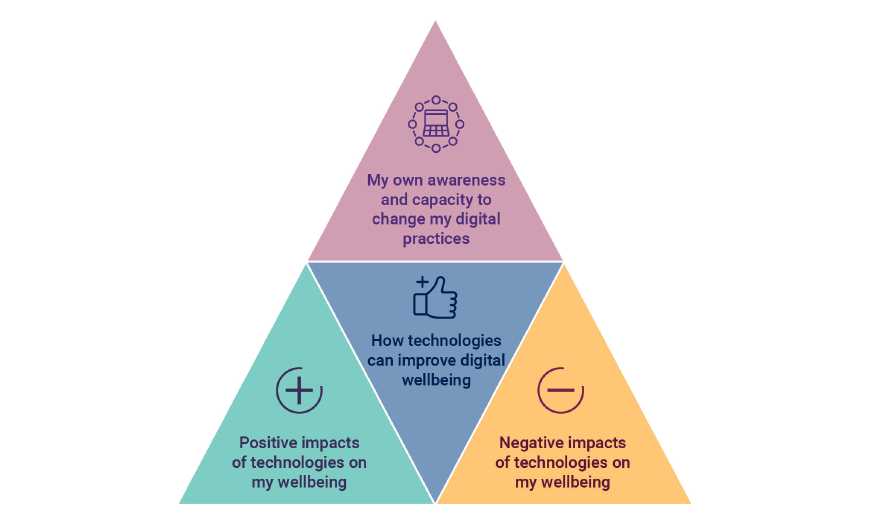Digital wellbeing
Digital wellbeing - the impact of technologies and digital services on people's mental, physical and emotional health
Digital wellbeing is a term used to describe the impact of technologies and digital services on people's mental, physical, social and emotional health. It is a complex concept that can be viewed from a variety of perspectives and across different contexts and situations:
- Individual perspective: personal, learning and work contexts: this involves identifying and understanding the positive benefits and any potential negative aspects of engaging with digital activities and being aware of ways to manage and control these to improve wellbeing
- Societal or organisational perspective: providers of digital systems, services and content have a responsibility for ensuring that these are well managed, supported, accessible and equitable. They also need to empower and build capability in users so that all who engage with them are equipped to do so in a way that supports and/or improves their wellbeing

Model showing four aspects of digital wellbeing for individuals (Jisc, 2019)
Download our guidance
- Our guidance for practitioners is titled 'digital wellbeing for you, your colleagues and learners'. In addition to a model and an exploration of the different aspects of digital wellbeing the briefing includes guidance on the positive actions individuals can take and some good practice principles to support the wellbeing of others
- Our guidance for senior leaders outlines good practice principles to support the digital wellbeing of your learners and staff. It explores the key issues and responsibilities and sets out eight good practice principles that organisations can adopt
Online workshops
- Supporting learners’ digital identity and wellbeing - this online workshop explores the ways in which technology-enhanced learning can support the development of learners’ digital identity and wellbeing. This workshop is aimed at curriculum staff and other professionals involved in supporting the welfare and support needs of learners (for example, from the library, learning technology, learning support or employability teams).